This article is part of a semester-long series on the last decade in Ivy League athletics. To read the first article in the series, click here.
Almost all sports fans love a Cinderella story. We’ve previously tracked the most impressive seasons that any Ivy League sports teams have had, but that doesn’t tell the full story — if an annual juggernaut was expected to dominate from start to finish and did so, where’s the fun in that?
These teams do not fit that bill. In fact, each of these teams overcame sub-par finishes in years past to blow away all expectations outsiders had of them. Here are the most surprising Ivy League regular season championships from the past 10 years.
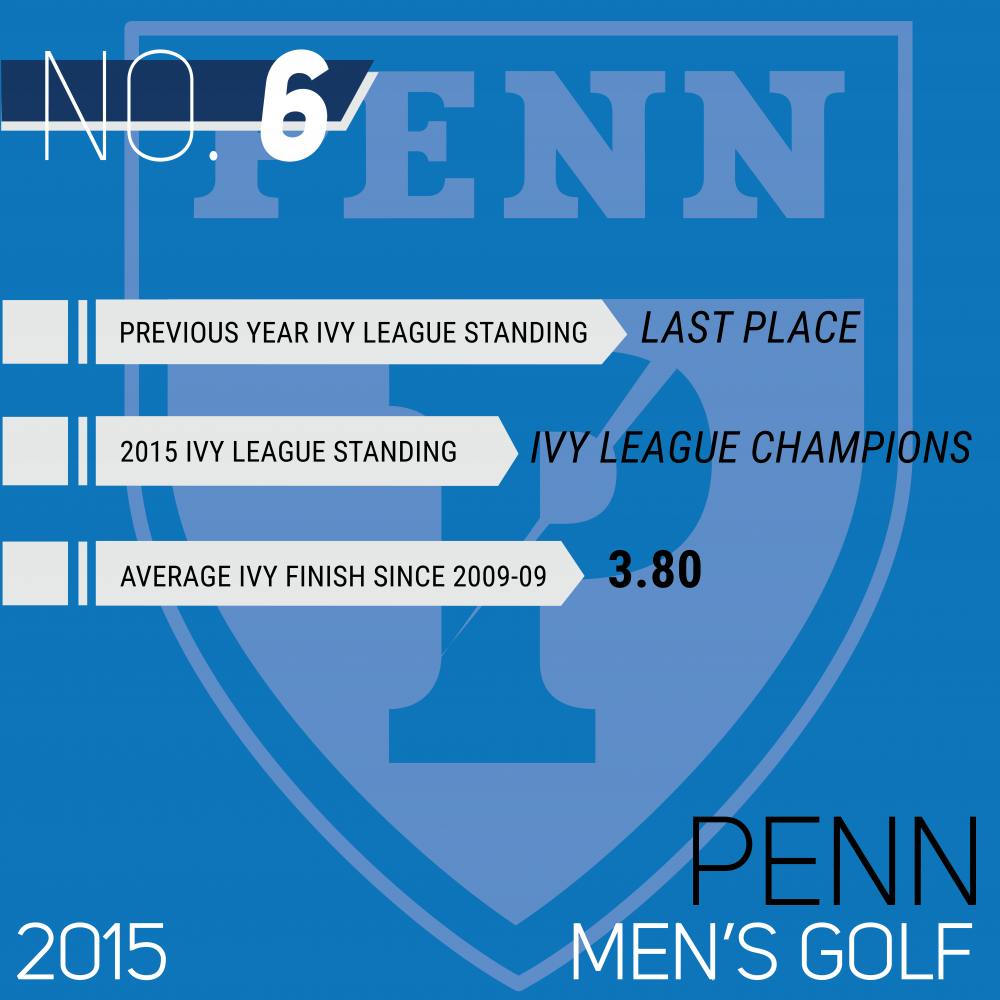
Not only was this championship unexpected entering the season, it was looking extremely unlikely heading into the final round of competition at the 2015 Ivy Championships. Led by seniors Ben Cooley and Austin Powell, the Quakers had a solid regular season, but they still trailed rival Princeton by as many as seven strokes on the last day of the conference championship. But as Powell later told The Daily Pennsylvanian, “We felt like if we were loose and like ourselves, we would have a good chance.” The Quakers did just that the rest of the way. After its top four golfers combined to finish seven under par on the back nine of the final round, Penn finished with 885 strokes on the weekend to barely edge Princeton’s 886.
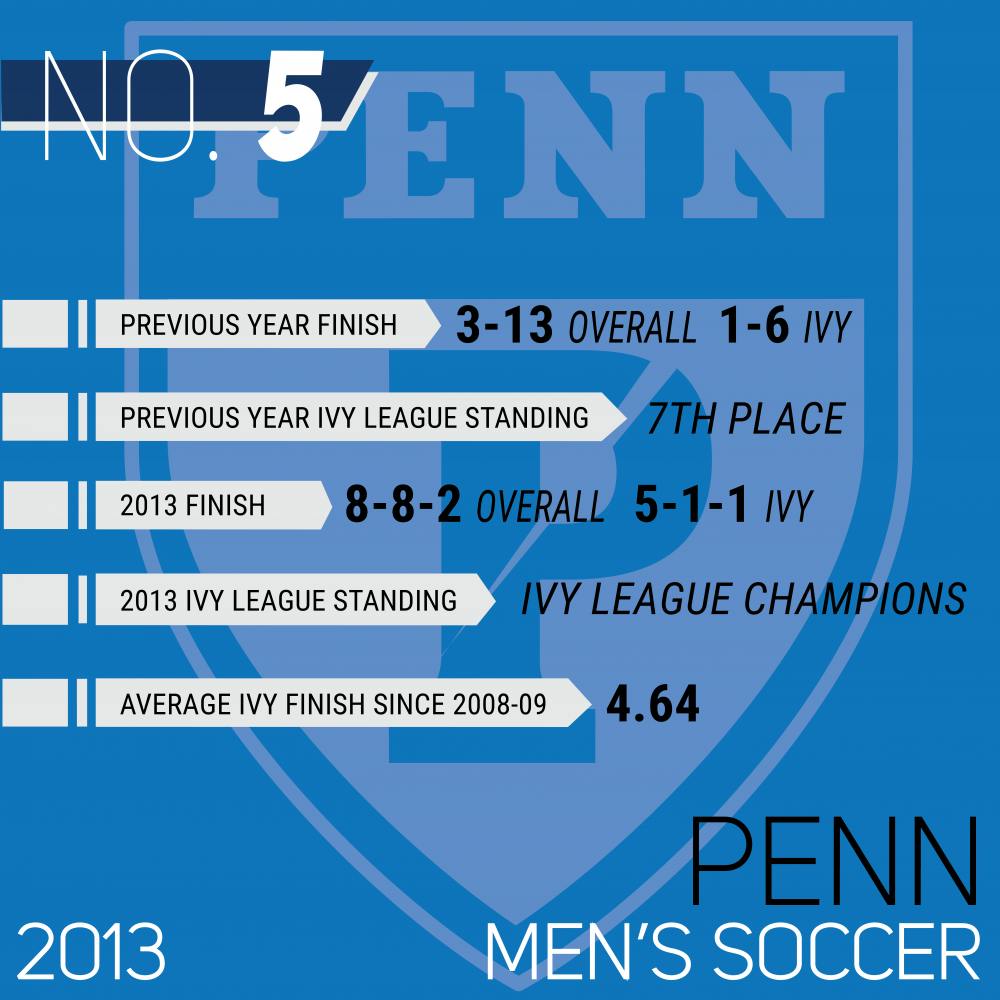
Standing at 2-6 overall with a six-game losing streak at the end of September, the 2013 Penn men’s soccer season was looking just as bleak as the previous one. But as the Ivy play approached, a switch was flipped for the Quakers, who suddenly became title contenders. Though offensive superstar Duke Lacroix was the face of the team, it was actually the Red and Blue’s defense that pushed them to the top of the league, pitching shutouts in four of seven Ivy contests. The last shutout was the most important of all. The Quakers faced Harvard in the final game of the regular season, when a Penn loss or tie would have given the Crimson the outright Ivy title. Penn proceeded to scored twice in the first half and hold on for a 2-0 win for the school’s first solo title since 1972.
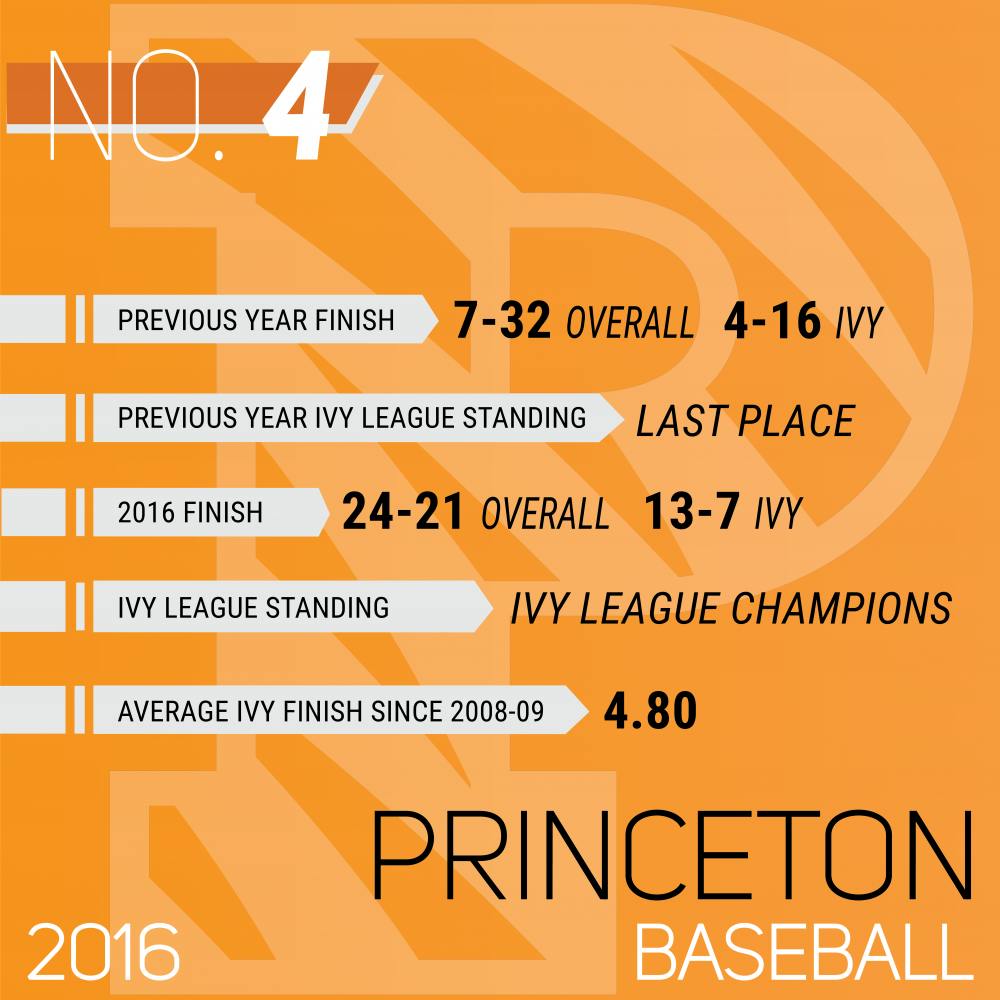
The concept of Princeton as an underdog in almost any sport sounds comical. But after a dreadful 2015 season, no one saw the Tigers being a legitimate Ivy title threat so soon. Surprisingly, Princeton put together a little bit of everything to pull off an impressive worst-to-first jump. Part of that success came from the Tigers’ young talent, like then-freshman superstar Jesper Horsted and his team-leading .326 batting average. Part of it came from the unprecedented improvement of returning players, like 2016 Ivy Pitcher of the Year Chad Powers lowering his earned run average from 6.55 to 2.45. And even part of it came from luck; in Game Three of the Ivy Championship Series, Princeton trailed 1-0 entering the bottom of the ninth, but benefitted from two hit-by-pitches and then a walk-off wild pitch to stun favored Yale.
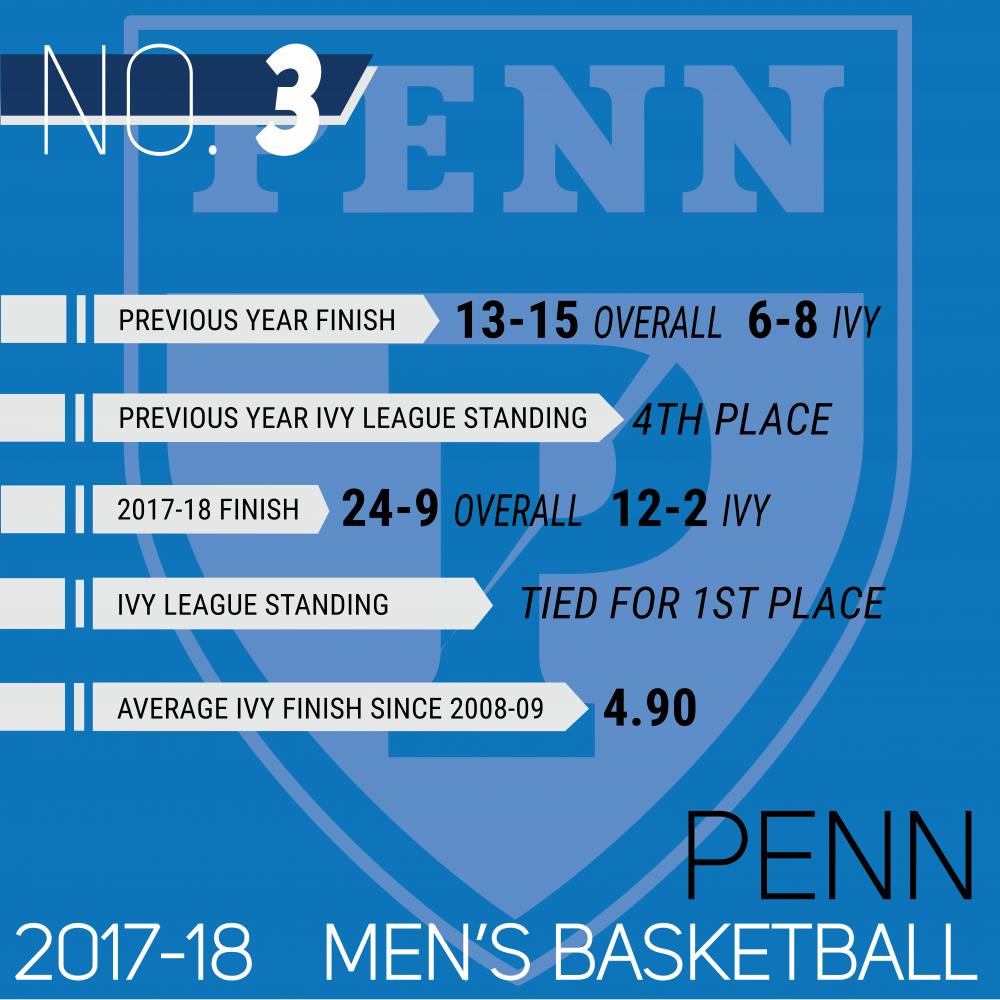
Even after the 2016-17 Quakers showed glimpses of being able to compete with the league’s finest in an Ivy Tournament overtime loss to Princeton, there seemed to be a pretty clear consensus entering 2017-18: it was the top three of Yale, Harvard, and Princeton, and then everybody else. Someone forgot to send that memo to Steve Donahue’s Penn squad, however. Embracing the underdog mentality from the start, Penn wasn’t just impressive in winning games, but also in how it went about winning them. Though stars like AJ Brodeur and Ryan Betley consistently made an impact, the Quakers were defined by their depth, with any player capable of stepping up in a given moment. Reserves like Sam Jones, Jake Silpe, and Devon Goodman each took over individual games. Finishing things off with an epic 68-65 win over Harvard in the Ivy title game, the season proved that Penn men’s basketball was finally back.
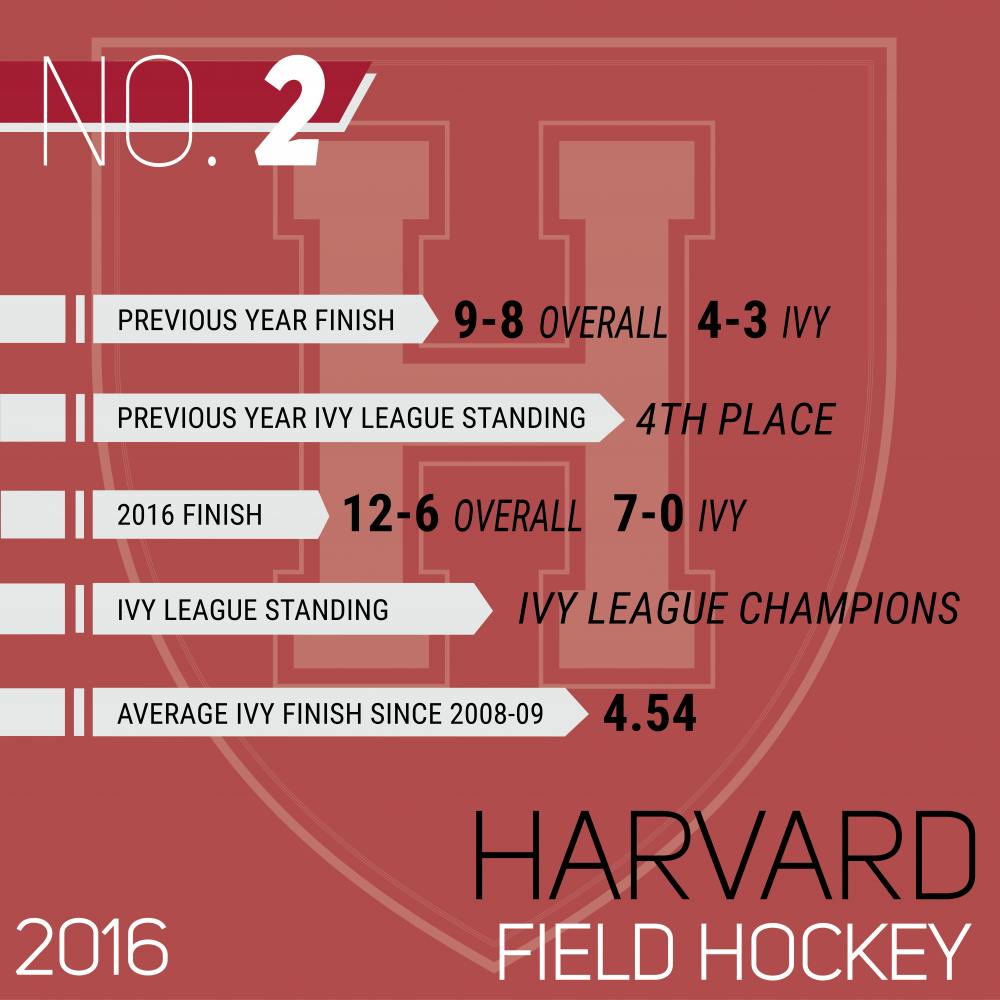
Why is an Ivy championship so surprising for a team that had finished in the top half of the league a year prior? When it comes to field hockey, anything but a Princeton championship is considered an upset for the ages. Before Harvard’s 2016 title, the 2004 split between Penn and Harvard was the last time that Princeton didn’t come in first. In fact, the Tigers have now won 22 of the past 25 league championships dating back to 1994, and defeating them didn’t come easy at all for the 2016 Crimson. Harvard needed double-overtime to overcome two Alexa Hoover goals in a 3-2 win at Penn before taming the Tigers in overtime three weeks later in what was essentially a league championship game. By the skin of their teeth, the Crimson escaped with a 7-0 league record to slow down Princeton’s dynasty, even if only for one year.
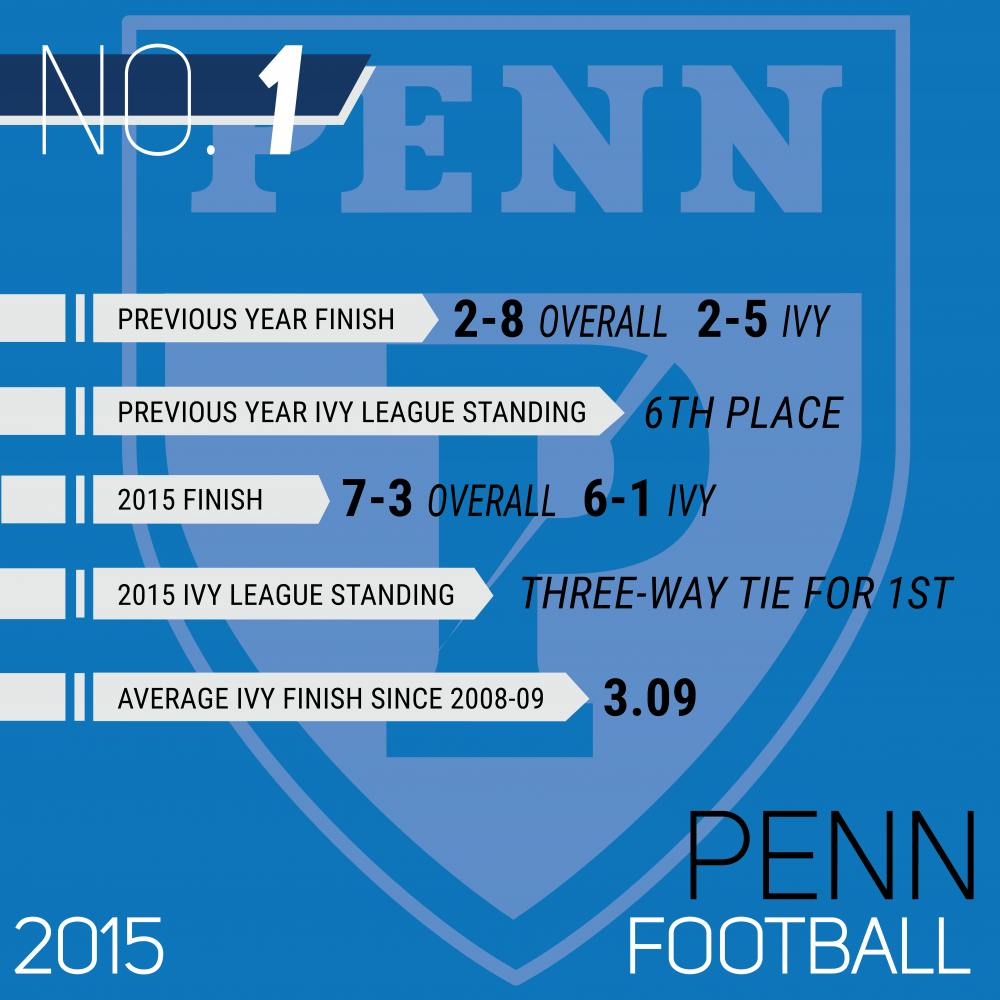
The greatest Cinderella story of all: Penn football entered 2015 coming off its lowest win total since 1991 and was predicted to finish in sixth place by the Ivy media poll behind first-year head coach Ray Priore following the (supposed) retirement of Al Bagnoli. After being drubbed by Dartmouth in the conference opener, a title run looked even more unlikely. But, every week, it seemed like something magical would happen. From dominating Columbia in the first matchup against Bagnoli to the Homecoming comeback win after blocking Princeton’s game-winning field goal attempt to snapping Harvard’s 22-game win streak behind Justin Watson’s offensive explosion, the 2015 Quakers gradually began to feel like a team of destiny. When everything culminated in an epic storming of Franklin Field after Penn topped Cornell to clinch a share the league championship, one thing was clear — against all odds, Penn football was a juggernaut again.
The Daily Pennsylvanian is an independent, student-run newspaper. Please consider making a donation to support the coverage that shapes the University. Your generosity ensures a future of strong journalism at Penn.
Donate




Most Read
Deputy Provost Beth Winkelstein to depart Penn, named next provost at Northeastern
Penn Medicine scrubs DEI webpages amid escalating federal crackdown
Here’s what to know about former Penn swimmer Lia Thomas
More Like This